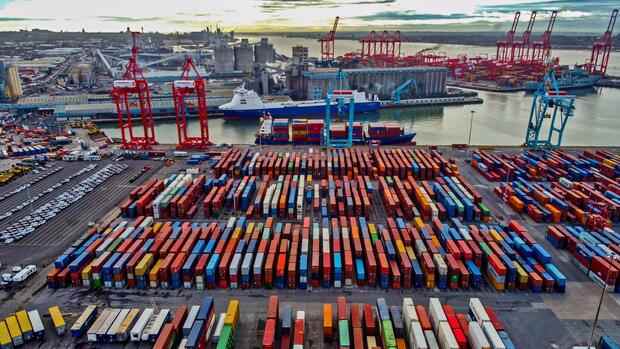In the country, a total of 77 percent of companies would have to adapt their supply chains.
(Photo: dpa)
Berlin According to a DIHK survey, material bottlenecks are affecting world trade more and more, and thus also companies from Germany. More than half of the domestic companies abroad reported problems in their supply chains or their logistics due to the coronavirus pandemic, said the German Chamber of Commerce and Industry (DIHK) on Tuesday in a study of 3,200 German companies abroad.
This is noticeably more than in the spring. Around 30 percent complain about a lack of goods and services, and every fifth company suffers from its own production stoppages, for example due to sick leave.
“Increasing global demand is currently facing insufficient production capacities and transport problems,” explained DIHK foreign trade director Volker Treier. Reasons for this are, for example, a lack of containers and freight capacities on ships as well as production downtimes. “The supply chain disruptions can also be traced back to serious trade policy upheavals, such as regulations stipulating that local production is compulsory.”
In view of the challenges in international business, 54 percent of companies are planning to adapt supply chains or have already done so. Almost three quarters of these companies are looking for new or additional suppliers and a third are planning to shorten or change delivery routes. Around 15 percent plan to relocate their own production.
Top jobs of the day
Find the best jobs now and
be notified by email.
According to the DIHK, the situation for German companies in the United Kingdom is particularly serious. “Here, a total of 77 percent of companies have to adapt their supply chains.” A good nine out of ten of these companies see themselves being forced to change delivery routes, and four out of ten are planning to relocate production – “mainly a consequence of new trade barriers after Brexit”.
More: The EU is losing the support of the German economy
